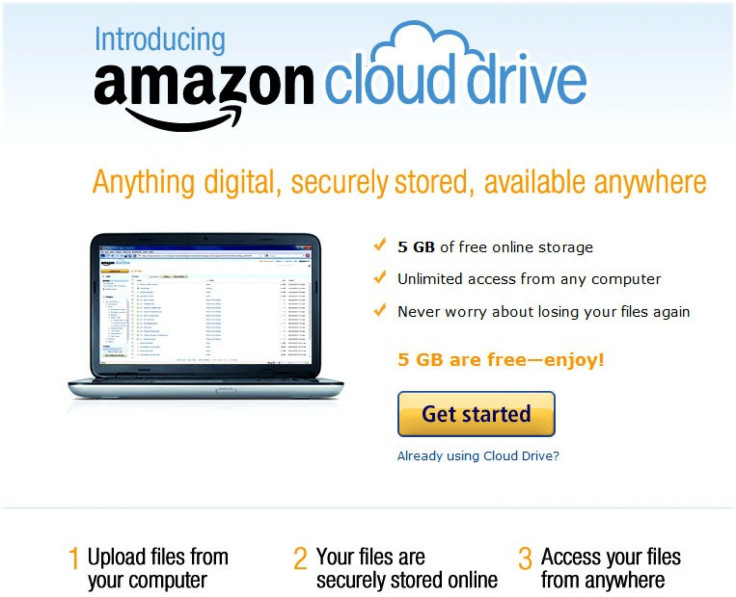Apple Most Valuable Company: Is Amazon Next in Line?

Apple made headlines Tuesday by passing Exxon Mobil to become the world's most valuable company in market capitalization, making a dramatic turnaround from being nearly broke years before. Now it's time to ask what company might be next in line to make a similar transformation.
At the moment, all indications point to Amazon, the company that began as an online bookseller but now is directly challenging Apple with its new Kindle Cloud Reader that bypasses Apple's App Store by offering books and other downloadable content through the Web instead of a native iOS app.
To date, Apple has virtually ruled the app roost -- one reason the company has become the world's most valuable. But if any company has the clout to successfully take on Apple through app sales and distribution and possibly even more directly, it could be Amazon, which is said to be nearing release of its own tablet.
If so, Amazon's tablet will run on Google's Android operating system, directly competing against Apple's iPad, while also competing against Apple's App store since Amazon has its own app store.
At one time, Apple's chief competitors including the likes of Microsoft and HP. Now, it appears Amazon has some chips in that game, and while the company is still far behind Apple in market capitalization size -- Amazon is currently at $87 billion, while Apple is at $340 billion -- it is perhaps the one company that could make a run like Apple just did, quickly becoming one of the world's most valuable companies.
Consider only that while Amazon's original claim to corporate fame was that it was among the first companies to show that yes, the dot com boom wasn't all bust. Online retailers could make money.
But the company didn't stop there. It developed the Kindle, the leading e-reader, and profitably changed publishing in a way that many traditional book publishers weren't ready for, with e-books.
At the moment, Amazon's Kindle Direct Publishing is also among the leading forums for self-publishing. Users can upload books for free, and Amazon gets a cut of every sale.
Now, Amazon is poised to enter the tablet world, as observers say the company will launch perhaps as early as this year an Android-based product to compete directly with Apple's iPad.
Like Apple, Amazon has the apps and content available online to back up the bold move. Based on Amazon's success with the Kindle, success with a tablet doesn't seem to be a question. Rather, the question seems only to be how successful Amazon will be with its tablet.
Still, that diversification alone isn't what has Amazon starting to look like like Apple -- one of the most competitive business models ever built.
For example the firm William Blair noted in a July 21 report titled "More Retailers Struggling to Navigate Amazon's Surging Current" that Amazon's prices on 1,000 identical items are greater than 10 percent when compared to a cross-section of U.S. retailers.
The firm notes that consumers are now increasingly using smart phones and other mobile devices to price-shop, illuminating Amazon's advantage on the spot -- suggesting that advantage will only grow in the future because of advancing technology and Amazon's competitive pricing across the board.
In other words, fast-advancing personal technology is fuel to Amazon's raging, business-model fire. No competitor can touch Amazon's prices in thousands of products and more people every day gain the ability to price check on the spot, then order from Amazon in one click if they desire.
More revealing may be the incredibly bullish sentiment by Morgan Stanley, which gets quite specific in the argument made as to why Amazon might be the most competitive business model ever built. Morgan Stanley rates Amazon as "overweight," remaining aggressive buyers of the stock, noting that Amazon is doing it bigger and faster than Wal-Mart did, growing from a humble start as a discount retailer in Arkansas to become the world's largest retailer.
"Amazon is the Wal-Mart of our era but it's better, in our view -- Amazon.com is the combination of technology + logistics company, allowing it to participate in a transition of physical to digital retail supported by store-less (in Seattle) business model that leads to higher long-term economic returns," said Morgan Stanley, according to The Wall Street Journal.
Amazon Facing Challenges
So bullish are analysts on Amazon they have to look hard to find potential knocks that may impact the stock. Amazon manages Target.com on its Web site, and there's always the threat that partnership could end. Amazon faces sales tax issues in many states throughout America that loom large.
But to date, the company has ably navigated without significant impact to sales.
There's profit pressure on the Kindle as Amazon reduces prices, and there's also the heavy investment Amazon is making in a current double-down cycle, perhaps launching a tablet and other technologies like the new Kindle. But even so, many analysts note that Amazon's strength is remarkably allowing profits to continue on the rise despite heavy investment.
Other strengths looking ahead including potential for growth abroad in Kindle sales as well as expansion of video and related content sales if Amazon does successfully launch a tablet later this year. Also, remarkably, despite its growth and origination as an online company, Amazon's only real tangible, operating-overhead expenses relate to company headquarters and warehouse facilities.
Those factors, combined with Amazon's competitive advantage across many consumer retail categories, are why Amazon's stock is trading at almost 85-times trailing earnings. That's why, in spite of the lofty stock price, most analysts maintain aggressive buy positions on Amazon.
That's also why Amazon might be the next to rocket to the top of the list of the world's most valuable companies.
© Copyright IBTimes 2024. All rights reserved.





















